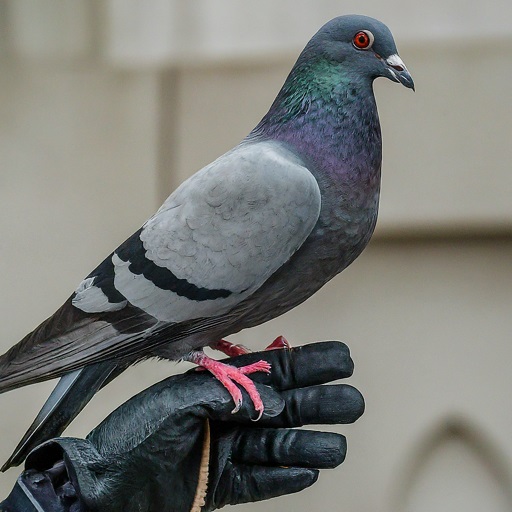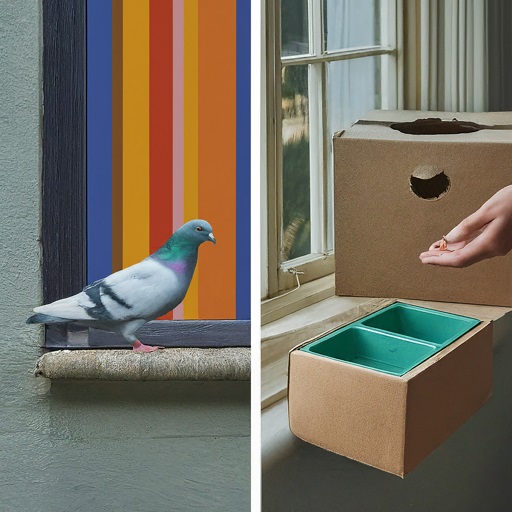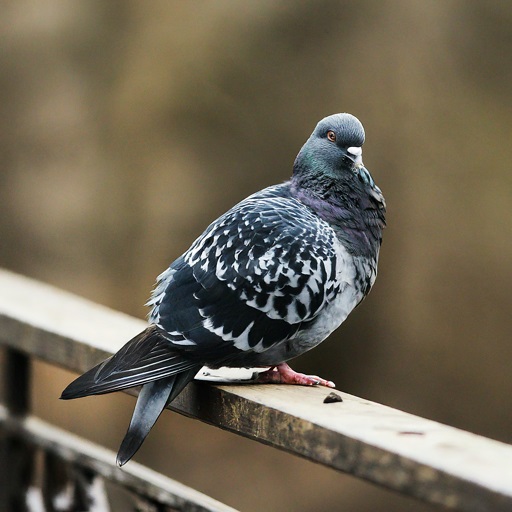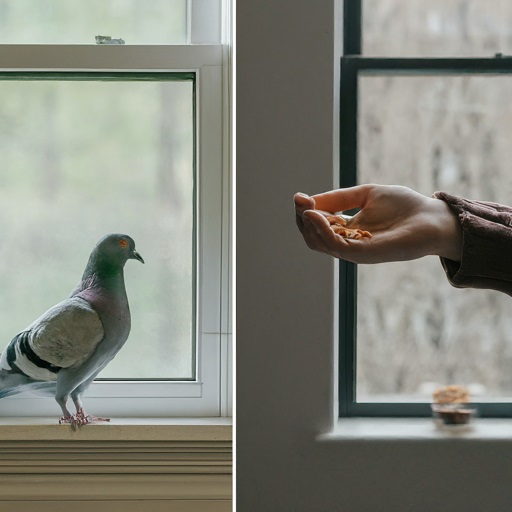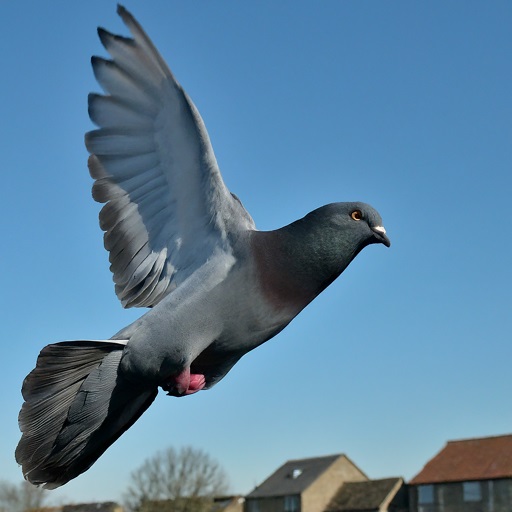Are Pigeons Hard to Take Care Of? (5 Possible Difficulties)
When you look at our history, you will find pigeons living alongside humans for thousands of years & renowned for their cultural value, religion, and historical references. Even though pigeons are commonly associated with our lifestyle & urban landscape, they can also make a unique & affectionate pet. However, when it comes to pigeon ownership, it also comes with some challenges.
It is common to wonder, ‘Are Pigeons Hard To Care For.’ In this article, I will answer the question of ‘Are Pigeons Hard To Care For’ and the difficulties involved in adopting one. They are undoubtedly known for their remarkable intelligence, social sociability & ability to form strong bonds with their owner. Even many pigeon enthusiasts find joy in raising these birds & appreciating their charming personalities. However, like any pet, pigeons will also need some proper care & attention to thrive. Therefore, consider the question, ‘Are pigeons hard to care for.’
Are Pigeons Hard To Take Care Of?

Caring for pigeons can be both easy & challenging, depending on your circumstances & experience with birdcare. Like any other pet, pigeons have their preferences & requirements in terms of housing space, diet, exercise, mental stimulation, engagement, & commitment. Even though pigeons can be delightful companions, it is important to be aware of the challenges a potential pigeon owner may face. Therefore, I mention five difficulties of having a pigeon as a pet.
5 Difficulties of Owning Pigeons

High Time Commitment
First, caring for any pet, including pigeons, requires a significant time commitment. If you are not prepared to give your pet some time, you should refrain from adopting any animal. According to a survey by the American pigeon society, owners should spend an average of 2-3 hours per day feeding, cleaning, & interacting with their birds. Plus, pigeons are highly sociable birds who require regular interactions & attention from their owner.
Therefore, if you fail to provide their need for companionship, it will quickly lead to stress & loneliness, impacting their overall health & well-being. In addition to the time required for daily care, pigeon owners must train these birds. When it comes to training & pigeon, you must be patient & consistent to establish a strong bond & teach them the desired behavior. Below are a couple of tips for managing time with pigeon care.
- As soon as you adopt your first pigeon, you must set a consistent daily routine for feeding & cleaning their cage.
- Since pigeons are highly intelligent & social, allocate some time for regular training & play sessions to keep your Birds mentally stimulated.
- If you are planning to visit your relative or going on vacation, consider enlisting the help of your family or friend to ensure the pigeons’ proper care.
Space & Housing Constraints
If you reside in urban areas or apartments, you might face many challenges in providing your bird with adequate space. According to a study by the urban wildlife institute, urban pigeons face restricted living spaces due to the lack of suitable habitats. Therefore, you must get an appropriate size pigeon coop or avatar to accommodate the number of pigeons you plan to keep. Keeping them confined will quickly lead to stress & behavior problems like feather picking & aggression. I highly advise creating a pigeon-friendly urban space using your balcony or rooftop.
On a rooftop or balcony, you can build a safe & secure pigeon coop. However, make sure that you also install pigeon-friendly perches & nesting spots to make their natural environment with toys & obstacles to keep your pigeon mentally stimulated all the time & prevent cooing. Some Birds, like doves & pigeons, are known for their cooing calls, which is very soothing for some people, while some find them very noisy or irritating.
To know more about people’s perception of pigeons, I will advise you to consider reading my recent articles on Why Do People Hate Pigeons‘ and ‘Why Do People Keep Pigeons.’ Also, we have shared an in-depth guide on ‘Pigeons As Pets Pros and Cons‘ for you to check out. Returning, you must provide them with a proper nesting spot, especially during nesting season. To know about the pigeon nesting season, consider checking my guide on ‘When Do Pigeons Nest.’
Health & Veterinary Care
You must help maintain the health of your pigeon by visiting the nearby clinic for regular checkups & proper disease prevention measures. According to the research published in the Journal of avian medicine & Surgery, pigeons have many common health issues, including parasites and respiratory infections. Since pigeons are prey animals, they have adapted to hide signs of sickness, making it essential for your owners to be vigilant & observant of any changes in their pet’s behavior or appearance. Ensure you visit the vets regularly to detect & address any health issues early on. Below I’m mentioning some common health issues, the prevalence rate & preventive measures.
| Health Issue | Prevalence Rate (%) | Preventive Measures |
| Respiratory Infections | 30 | Regular coop cleaning & good ventilation |
| External Parasites (Mites) | 20 | Frequent grooming & use of pigeon-safe insecticides |
| Intestinal Worms | 15 | Regular deworming treatments |
Diet & Nutrition Management
For a new bird keeper, achieving a balanced diet for their pet pigeon can be very challenging, especially if they’re unfamiliar with their dietary requirements. A study by the University of California Davis stated that improper nutrition might lead to health problems & reduced lifespan in pets, including pigeons. Therefore, ensure you provide them with a well-balanced diet that meets their nutrition requirement daily for optimal pigeon growth, development, & overall health.
Any malnutrition will weaken your pet’s immune system, making it more susceptible to diseases. Therefore, consult an avian veterinarian to create a customized diet plan based on your pigeon-specific requirement. Also, you should offer them a variety of fresh fruit & vegetables to ensure proper nutrients. And avoid feeding them any processed human food that can lack essential nutrients & may pose health risks.
Behavioral & Training Difficulties
Just like any other bird species, pigeons are also known to have instincts that can sometimes lead to challenging behavior. While researching, I encountered a study by the University of Exeter stating that pigeons may exhibit territorial aggression or stubbornness during training. Even though pigeons can be traced easily, you will have to be patient & provide them with proper positive reinforcement & training.
Also, ensure you understand their natural behavior to build a strong bond with your pet for successful training. Below are the unwanted behaviors you are likely to experience with the journey of pigeon keeping. We have also discussed the training solution to tackle that behavior.
| Behavior | Difficulty (%) | Training Solution |
| Territorial Aggression | 40 | Gradual desensitization & positive reinforcement |
| Picking at Feathers | 25 | Providing alternative distractions & toys |
| Refusing to Return Home | 20 | Positive reinforcement with treats & praise |
Pigeon Care Requirements
Now that we know how hard a pigeon can be to keep, it’s time to focus on providing the best possible care for the pigeon. If you are already aware of their specific need, you will be able to create a harmonious environment for your feather friend. Like any other pet, pigeons also need a safe & comfortable living space, a balanced diet, & regular veterinary care, as discussed below.
Basic Housing & Habitat Requirements
As I told you earlier, you must provide your pet pigeon with a space & secure living environment. Therefore, ensure you’re constructing a well-built coop with enough space for flying & perches for your pet’s essential physical & mental well-being. Also, please keep your pet pigeon in pairs or small groups because they are highly sociable creatures who can easily feel lonely, leading to stress.
In addition to this, pigeons are known to thrive in an environment that allows them to spread their wings & fly freely. Flying is a form of exercise for pigeons and a way to express their natural behavior. In the wild, pigeons cover vast distances daily while searching for food & water. Therefore, providing a lack of flying space to your pigeon may lead to further health & behavior issues like obesity & boredom.
Below is the recommended pigeon dimension you need to have for their well-being. I have also mentioned a coop size for a single pigeon if you find a wild injured outside for temporary fare. If you plan to keep wild ones at home, consider reading my article on ‘Can You Keep A Wild Pigeon As A Pet.’
| Coop Size | Minimum Dimensions (inches) | Ideal Dimensions (inches) |
| Single Pigeon | 24 x 24 x 24 | 36 x 36 x 36 |
| Pairs of Pigeons | 36 x 24 x 24 | 48 x 36 x 36 |
Nutritional Needs & Feeding Habits
Unlike doves who only feed on grains & seeds, pigeons tend to thrive on a diverse diet, including seeds, grains, fruits, vegetables, & human scrap foods available in urban locations. A balanced diet is crucial to prevent any nutritional deficiency in your pet and maintain their overall health. In The wild, pigeons have been seen foraging for various food, which provides them with essential nutrients.
When you keep them as pets, you must reflect or mimic this diverse diet to ensure their well-being. Pigeon mixes available in the pet pigeon are specially formulated to meet the nutritional requirement of these birds but make sure to choose a reputable brand. Also, make sure to avoid feeding a pigeon with processed human foods that contain harmful ingredients that threaten your pet’s health. You should also avoid salty or sugar foods that may lead to health issues like kidney problems & obesity in your pet. Below I have given a sample pigeon diet for you to check. But make sure that you consult a veterinarian to prepare a well diverse nutritious diet for your pet pigeons.
| Food Item | Daily Portion (grams) | Nutritional Benefits |
| Pigeon Mix | 30-50 | Protein & energy source |
| Grains (Corn, Peas, etc.) | 15-20 | It aids in digestion & promotes strong bones |
| Fresh Fruits/Vegetables | 10-15 | Vitamins & minerals |
| Grit & Calcium | Free-choice | Aids in digestion & promotes strong bones |
Conclusion
Owning a pigeon can be a rewarding experience, but it will also come with its share of difficulties. You must provide their proper housing, nutrition, health care, & training, all essential aspects of responsible pigeon ownership. Also, make sure that you understand & address these kinds of challenges to mitigate potential risks & problems associated with pigeon keeping.
Creating a nurturing environment for these unique & intelligent Birds would be best. Also, remember that pigeons may require time & effort. I have given my best to give you all the information you need to know on the question: ‘Are pigeons hard to care for’ as well as the difficulties involved with pigeon keeping. If you find the article helpful, then consider sharing it.
Your share will help many people learn about the difficulty associated with pigeon keeping & find the actual truth behind the question: Are Pigeons Hard To Care For? Check my other helpful guide on pigeon care & management shared on this website. See you in the next post, till then, take care & goodbye.

